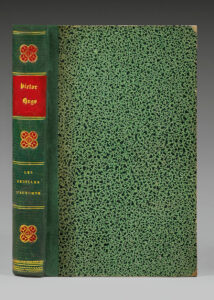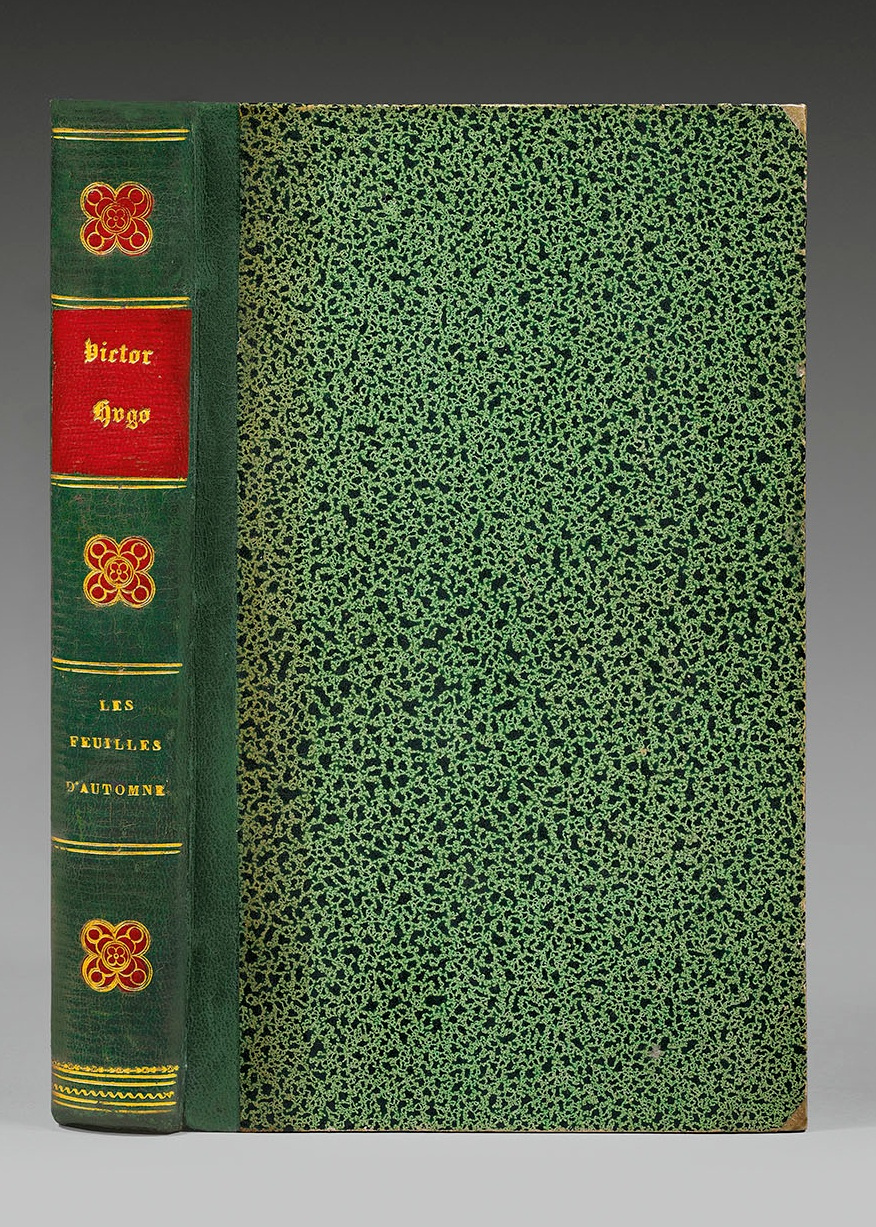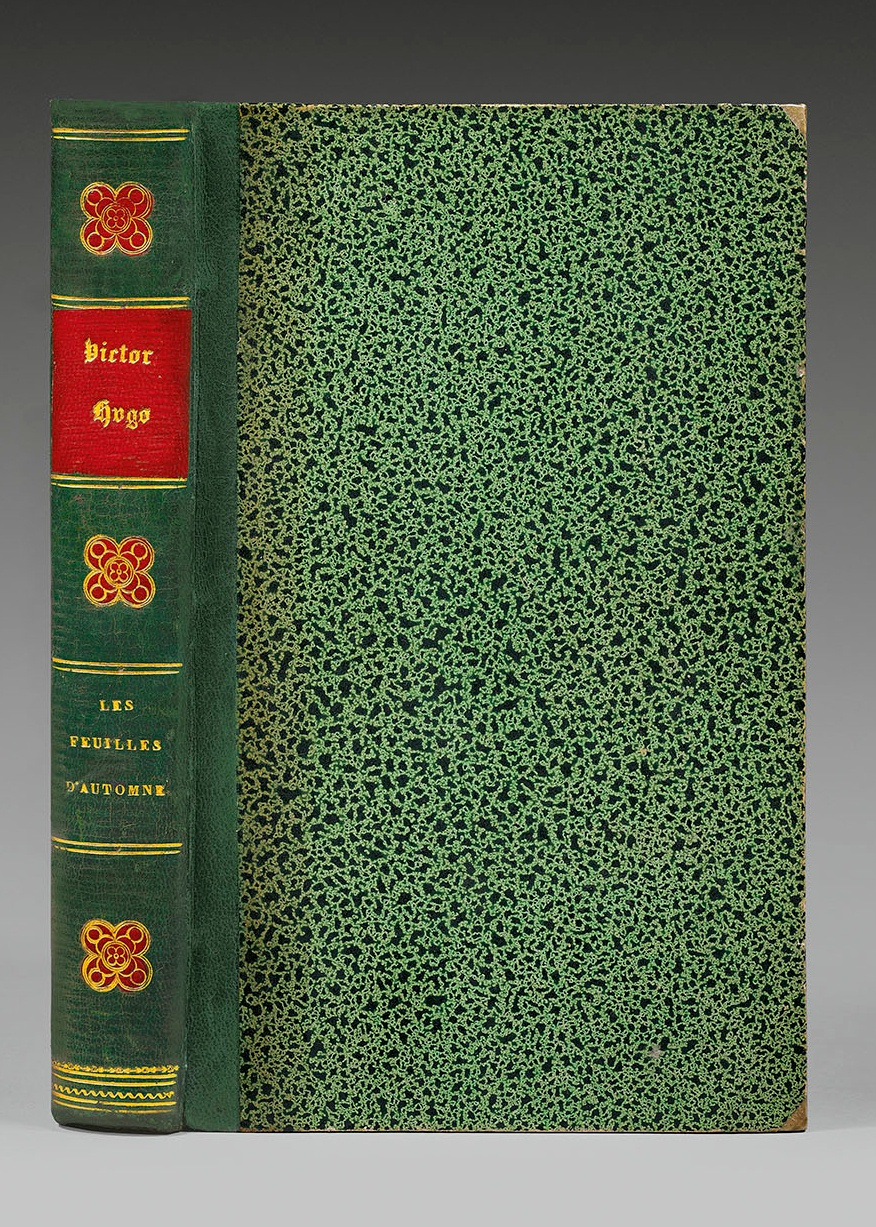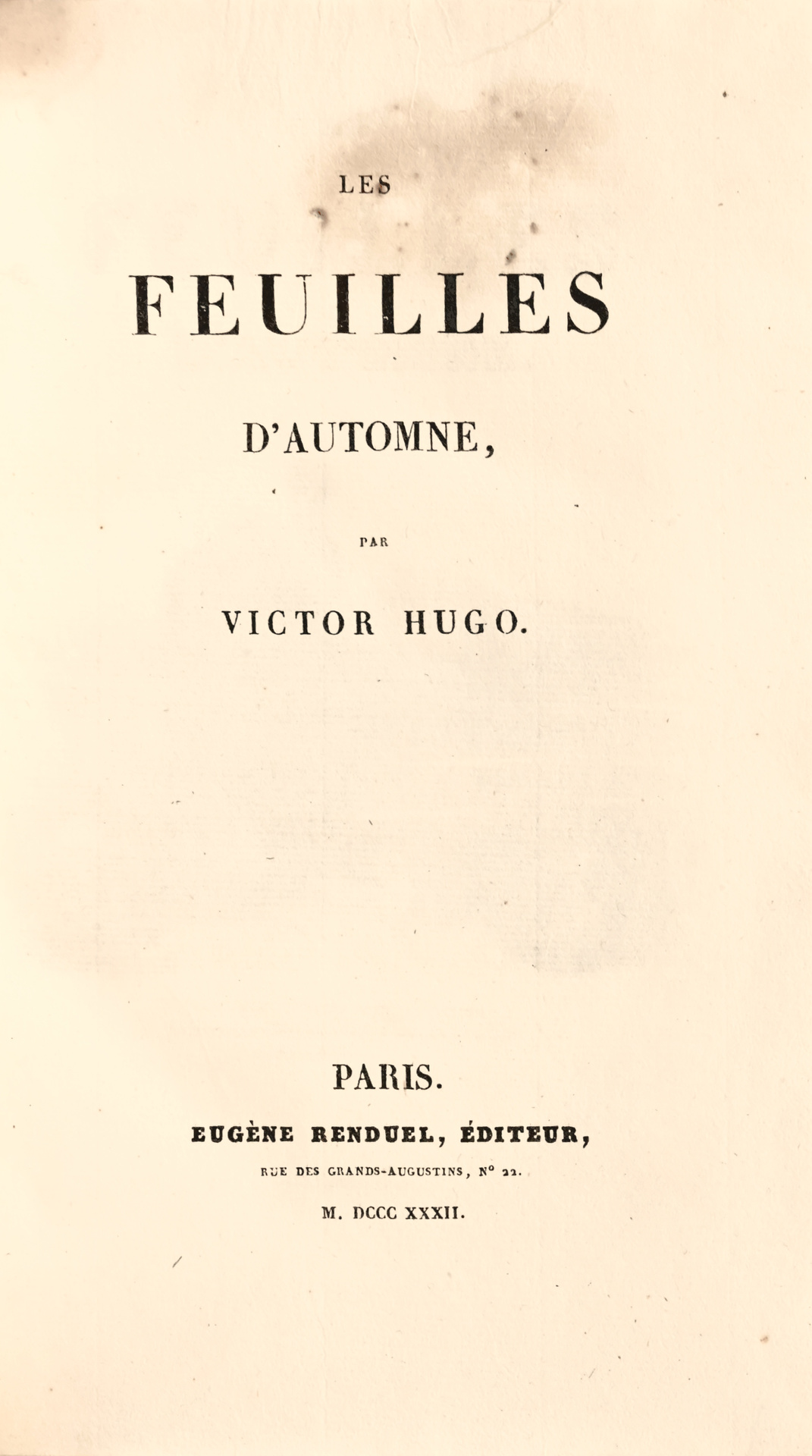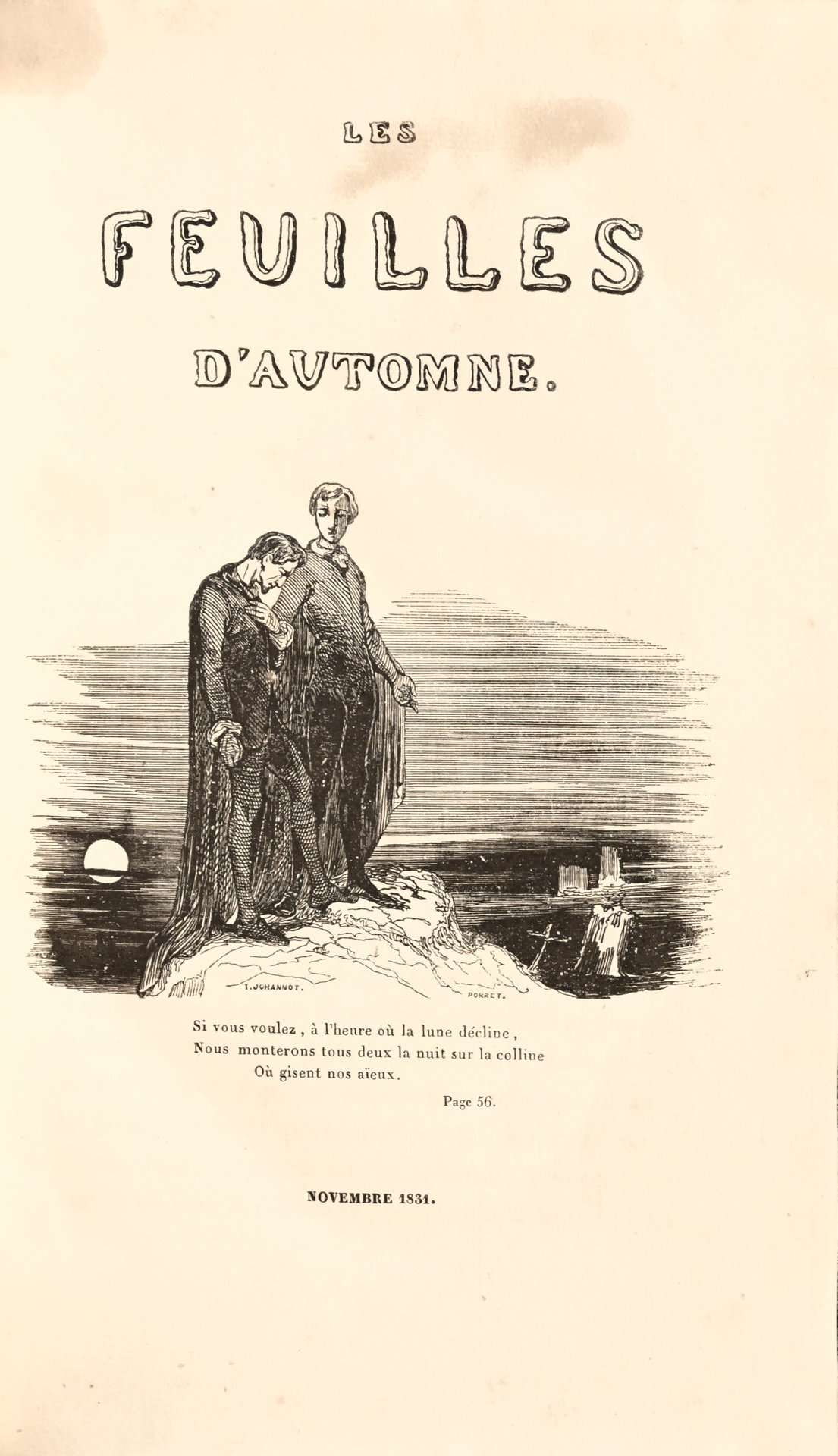Paris, Eugène Renduel, 1832.
8vo [203 x 127 mm] ll. of half-title and title, xiii pp. including a frontispiece, (1) l. (second half-title), 387 pp. and (2) ll. of table. Some rare foxing. Bound in green half morocco, smooth spine decorated with gilt fleurons and mosaics in red morocco, title page in red morocco, mottled edges. Contemporary binding.
Rare first edition “printed in only 500 copies” (Clouzot, 145).
Carteret, I, 403; Vicaire, IV, 272.
“Rare with no mention of the edition,” Clouzot points out.
“A few very rare copies were printed in large paper, the number of which is unknown… A capital work among the poeths of Victor Hugo, very rare, in good condition.” (Carteret).
“Collection of poems by Victor Hugo which precedes ‘Les Chants du crépuscule’ and ‘Les Rayons et les Ombres’. The character of this collection seems to be defined by the author himself in his preface: ‘Fallen leaves, dead leaves, like all autumn leaves. This is not poetry of tumult and noise; it is secret and peaceful verse, verse as everyone does or dreams, verse of the family, of the domestic hearth, of private life; verse from the interior of the soul. It is a melancholic and resigned look, cast here and there on what is, especially on what has been. It is the echo of those thoughts, often inexpressible, which are confusedly awakened in our minds by the thousand objects of creation that suffer or languish around us: a flower that is going away, a star that is falling, a sun that is setting, a church without a roof, a street full of grass […]”.
Victor Hugo has never been happier in expression, more tender and more true than when he speaks of his childhood. The graces, the games of children, the regrets, the family affections, have never been sung by this poet with so much pathos […] These verses are from 1830; Victor Hugo was thus 28 years old when he wrote them. He must have already plunged into the depths of everything to bring back these bitter fruits before time! Also, this soul of an extraordinary strength could not be satisfied, despite the confidences of the preface, with a poetry of a purely intimate nature. [….] In a word, his extraordinary talents as a painter, his need for grandiosis, for the epic, can only be given full coverage if he gives the most mere reminds and circumstances of his life a heroic character, an exemplary significance [….] Thus Lamartine’s soft and tender voice is answered by this fiery and hoarse voice: the legitimist of 1820 is about to become the singer of the great historical convulsions, the poet of the tragedy of the people. Thus this ‘peaceful’ collection ends with an apocalyptic vision of Europe still quivering under tyranny and preparing for revolt. Sainte-Beuve judged ‘Les Feuilles d’automne’ as follows: ‘Exquisite for those in the profession, original and essential among the author’s other productions, the collection of ‘Feuilles d’automne‘ is also in perfect harmony with this century of confused renovation. The style, the rhythm, have taken on all their perfection. the poet has surpassed himself in ease and naturalness. Among the poems that have become famous is ‘Prière pour tous’, which contains pages of rare beauty […]” (Dictionary of Works, III, pp. 89-90).
A very fine copy of this sought-after first edition in its elegant contemporary binding.
Ex-libris Dousse est l’amitié.
